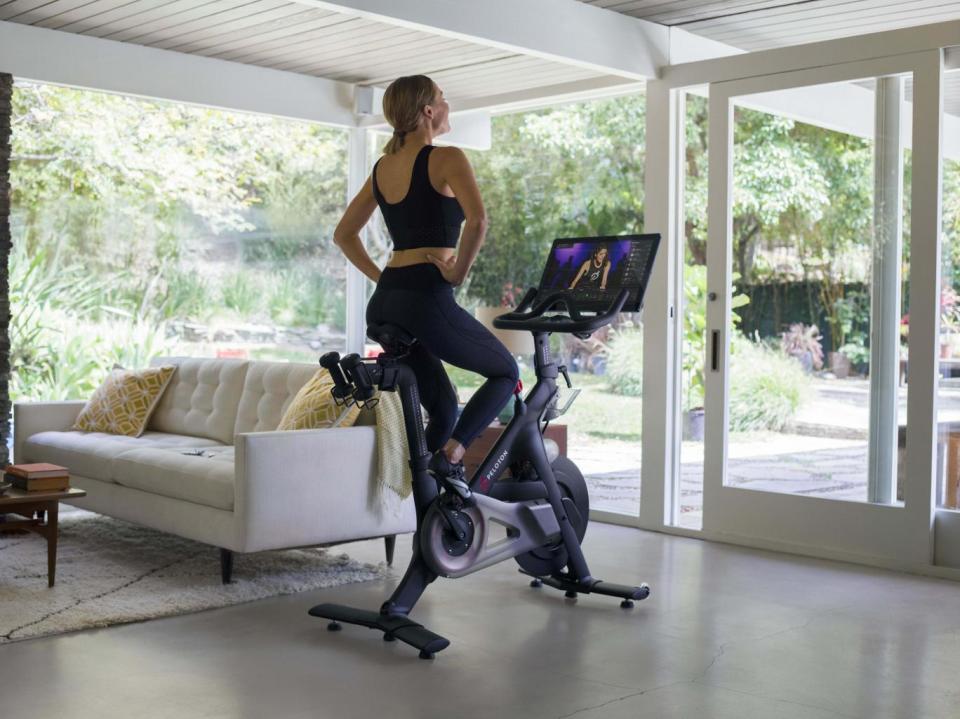Peloton CEO: Sales increased after we raised prices to $2,245 per bike
Peloton, which filed confidentially for an initial public offering on Wednesday, might not have gained a cult following had it not raised the price of its in-home exercise bike to $2,245 early on.
“It was interesting psychology that we teased out,” Peloton CEO John Foley recalled in an interview last year with Yahoo Finance. “In the very, very early days, we charged $1,200 for the Peloton bike for the first couple of months. And what turned out happening is we heard from customers that the bike must be poorly built if you’re charging $1,200 for it. We charged $2,000 dollars for it, and sales increased, because people said, ‘Oh, it must be a quality bike.’”
Foley is ready to take Peloton to the next level, this time, as a publicly-traded company. Peloton on Wednesday announced it had filed confidentially for an initial public offering, but the company has not yet determined the price for the IPO or the number of shares that will be offered. Peloton last raised a $550 million Series F round of funding, led by venture capital firm TCV, in August 2018, valuing the company at $4 billion.
It’s a stark difference from nearly seven years ago, when Foley, a serial entrepreneur and former Barnes and Noble (BKS) executive, found himself turned down by over 400 investors, who didn’t see a viable business in developing and selling fitness equipment for the home, including yet another exercise bike.

“I was just always pitching and always getting ‘No,’” Foley recalls. “Finally, over the course of five years, we became capitalized enough to build what is now Peloton. But I am proud to the extent that I went through those tough times, that we’ve shown there will be great returns for capital that comes into the fitness space, to the extent some of these other fledgling niche companies are getting traction or getting capital.”
A crowded market
Now, the situation is different for the in-home fitness market, which is even more crowded with quality devices, ranging from — yes — more exercise bikes like the cheaper $800 Echelon Fit to even a $1,500 mirror with a virtual trainer.
The New York City-based Peloton, which now has over 900 employees, has seen its business grow, driven largely by sales of its slick, internet-connected stationary bikes that stream thousands of live and pre-recorded SoulCycle-esque group classes into people’s homes. The company has sold over 400,000 Peloton bikes, according to a CNBC report earlier this year, which start at $1,995 (plus a $250 delivery fee and $39 monthly membership), earning a cult following of users who include Mark Zuckerberg, Richard Branson, Ellen DeGeneres, David Beckham, and Sean “Diddy” Combs. Along with the membership fee, Peloton offers an app with videos for spinning, running, strength training, and stretching.
Foley said presales of Peloton’s newer $4,000 internet-connected treadmill — a machine that chucks the old-school rolling conveyor belt in favor of smoother running slats — were triple the company’s internal estimates for the first six months. And since September 2018, Peloton has gone global, opening six showrooms across Canada and five stores in London alone, according to the company’s website.

It’s all part of a larger business play for Foley, which includes capitalizing on a slowly growing trend with Americans becoming more fitness-conscious. According to a report from the International Health, Racquet & Sportsclub Association due out later this year, 62.5 million Americans now own gym memberships — up 2.6% from 60.9 million in 2017.
By slowly rolling out new types of high-quality, internet-connected fitness equipment for the home, Foley contends he can get new customers to spend less time ponying up for gym memberships and more time exercising on Peloton machines in the convenience of one’s home. (Peloton is currently developing a third piece of fitness equipment, although Foley declined to give specifics.)
“You’re experiencing all the cardio you want from … your own home,” Foley explains. “Will you cancel your gym membership? Potentially, because you have better fitness equipment, better instructors, better software, better hardware, and a better location — and we’re going to make sure that’s a better value.”
Peloton’s growing pack of competitors will no doubt be watching closely.
Note: This story was originally published on September 12, 2018 and updated to reflect Peloton’s confidential IPO filing.
—
JP Mangalindan is the Chief Tech Correspondent for Yahoo Finance covering the intersection of tech and business. Email story tips and musings to jpm@oath.com. Follow him on Twitter or Facebook.
More from JP:
LinkedIn co-founder Reid Hoffman defends Facebooks’ response to election meddling
Bitcoin advocate Charlie Shrem: Here’s how long you should hold your crypto
Reddit co-founder: Why I’m betting on bitcoin despite its volatility
Nvidia CEO: ‘Computer graphics will never be the same again’
Amazon self-published authors: Our books were banned for no reason


